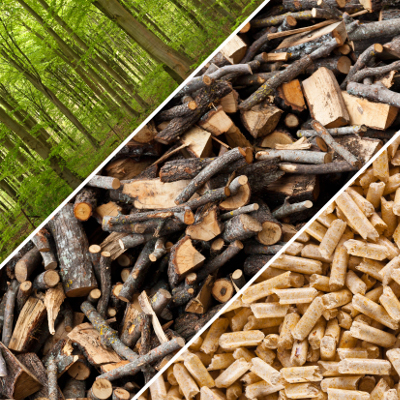Are you suffering from high energy bills or stuck with a faulty heating system? The chances are you might need a new boiler.
Nowadays there are lots of different kinds of boiler available. You can gas-, electricity-, wood- and oil-powered boilers and plenty of different system types within these categories.
One type of boiler that is growing increasingly popular is the biomass boiler. This boiler has a range of great benefits but it’s not suitable for everyone. We’ve put together a list of pros and cons to help you decide if a biomass boiler is right for you.
Pros
They’re environmentally-friendly
Biomass boilers are powered using tree and plant matter. As trees and plants absorb the same amount of carbon dioxide when they are alive that they emit when they are burnt, wood is considered a carbon-neutral fuel. Burning fuels like oil or gas, on the other hand, dangerously increases the amount of carbon dioxide in the air and contributes to global warming.
Although turning trees into fuel does emit carbon dioxide, this is a very small amount compared to the high levels of carbon dioxide that burning fossil fuels produces. Biomass boilers are a great way to heat your home and water efficiently and reduce your carbon emissions.
They’re cost-efficient
According to the Energy Saving Trust, a biomass boiler for an average home can cost between £9,000-£21,000 to buy and install. But don’t panic. The UK government has set up the Renewable Heat Incentive to help achieve its aim for 12% of heating to come from a renewable source by 2020. This incentive gives money to people using renewable energy to power their homes. If you install a biomass boiler you could receive financial support for up to 7 years!
Powering a biomass boiler is also cost-efficient. Most domestic biomass boilers are fuelled by wood pellets or logs. The price of these fuels varies – pellets tend to be more expensive than logs but logs cost additional money to transport. But whatever fuel you use for your biomass boiler, it’s likely to be much cheaper than oil or gas.
They’re easy to install
Biomass boilers can easily replace traditional heating systems. They are often a similar size to oil- and gas-fuelled boilers and you can usually install one in the same place as your old appliance.
Cons

You’ll need a plenty of space
Although biomass boilers themselves don’t usually take up too much room, you’ll need plenty of space to store fuel. If you’re planning on bulk-buying fuel to save money, this space will have to be quite large. You’ll also need to be able to access your boiler easily to fix it.
Affordable fuel can be hard to source
Before deciding to install a biomass boiler, it’s important to check whether the correct fuel can be delivered to your door and how much it will cost. Pellets can be easier to source than logs, but logs are often cheaper if bought locally. Make sure that you have access to affordable fuel before you go ahead and install a biomass boiler.
Biomass boilers need maintenance
The ash bins in biomass boilers need emptying from anything between once a day and once a week. However, some boilers can compress ash, which means their bins need emptying less often.
Biomass boilers also need cleaning to remove ash that builds up in their systems. This may have to be done manually and will mean briefly shutting down your boiler and temporarily going without heating and hot water. However, if you don’t fancy getting your hands dirty you can get biomass boilers with self-cleaning systems.
Regardless of the type of biomass boiler you get, you’ll also need to sweep its flue at least twice a year.
So is a biomass boiler right for you? If you’re keen to cut costs and have the space for fuel or would like to reduce your carbon emissions and are happy to do some maintenance work, you might want to look into installing one.
If you decide that a biomass boiler isn’t for you, why not take a look at some other renewable energy options, like solar panels or heat pumps?









